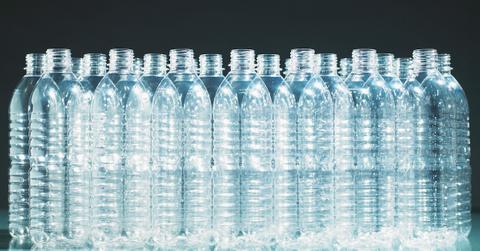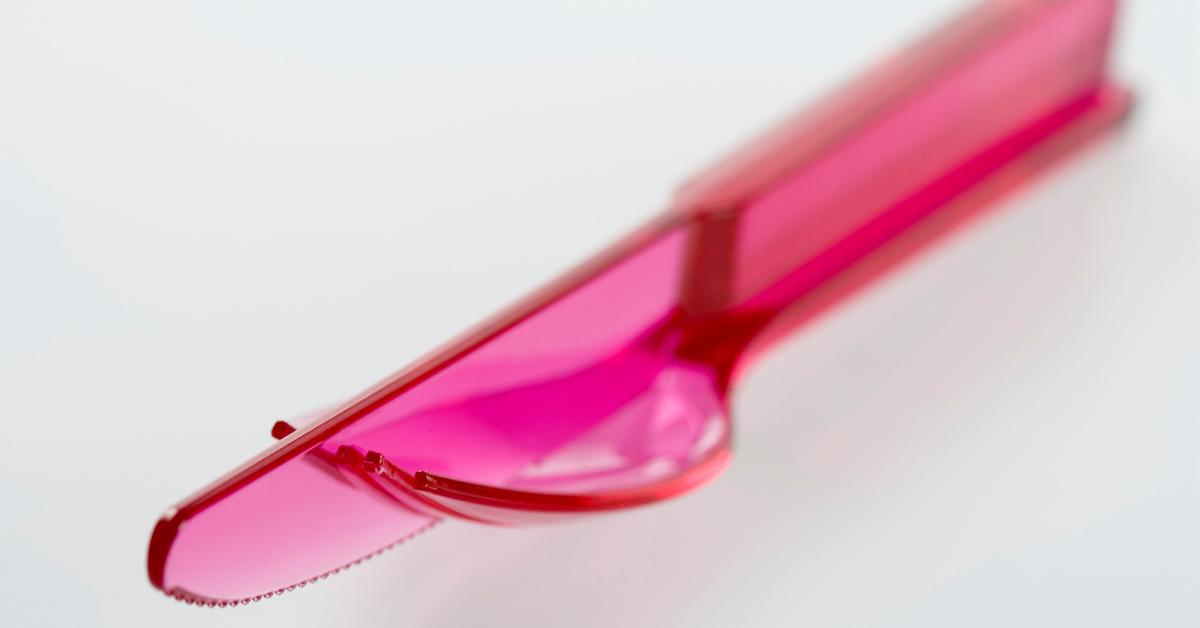Scientists Develop New Bioplastic That Is *Actually* Compostable
Updated April 27 2021, 12:30 p.m. ET

Plastic is one of the leading offenders of pollution — the production process requires exorbitant amounts of energy, plastic takes years to degrade, and eventually, it breaks down into microplastics. And because society so heavily relies on the sturdy material, scientists were eager to finally release a reliable version of biodegradable plastic, created by the U.S. Department of Energy's Lawrence Berkeley National Laboratory and University of California, Berkeley.
“Look at all the wasted stuff we throw away: clothing, shoes, electronics like cellphones and computers. We are taking things from the earth at a faster rate than we can return them," Ting Xu, study co-author and faculty senior scientist in Berkeley Lab’s Materials Sciences Division, told Berkeley News. "Don’t go back to Earth to mine for these materials, but mine whatever you have, and then convert it to something else.”

What to know about biodegradable plastic:
As previously mentioned, researchers from the U.S. Department of Energy's Lawrence Berkeley National Laboratory and UC Berkeley teamed up to create biodegradable plastic, according to EcoWatch. The study, which was published in Nature on April 21, 2021, honed in on a type of polyester called polylactic acid, or PLA, which can effectively "eat" plastic over a period of time, which is accelerated by high heat. This results in 80 percent of plastic breaking down after approximately one week.
Although "biodegradable plastic" already existed, it often broke down in clumps, leaving behind microplastics — therefore, it wasn't actually compostable, according to Science News. But Xu and her team found that if they added these special enzymes along with a degradable additive Xu developed on her own to the film of the plastic, it would prevent enzymes from clumping together and microplastics from being formed. And the best part? The weight and strength of the plastic isn't compromised.
Xu hopes this will change how scientists look for solutions in the future, inspiring researchers to look for resources we already have readily available.
"In the wild, enzymes are what nature uses to break things down — and even when we die, enzymes cause our bodies to decompose naturally," Xu told Berkeley Lab. "So for this study, we asked ourselves, 'How can enzymes biodegrade plastic so it's part of nature?'"
When will biodegradable plastic become more widely available?
The co-authors of the study have filed a patent for their findings, and a co-author of the study has already founded a company that is willing to financially back and commercially develop this highly useful material, as per EcoWatch. The leaders of the study hope the material will be developed into other materials like electronic glue and patio furniture, but they say it's crucial biodegradable plastic is "built into" the existing system since society heavily relies on the convenience of plastic.
"Consumers are not going to change their behavior. You can try to get people to bring their cloth bags or charge them to use a paper bag, but at the end of the day [it's about] convenience," Xu said, as per Academic Times.
“We want this to be in every grocery store," she continued, as per Science News.
Finally — a bioplastic to be excited about.